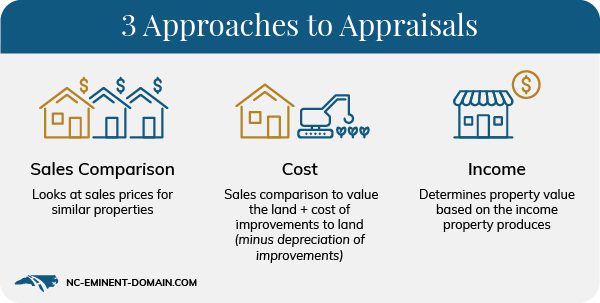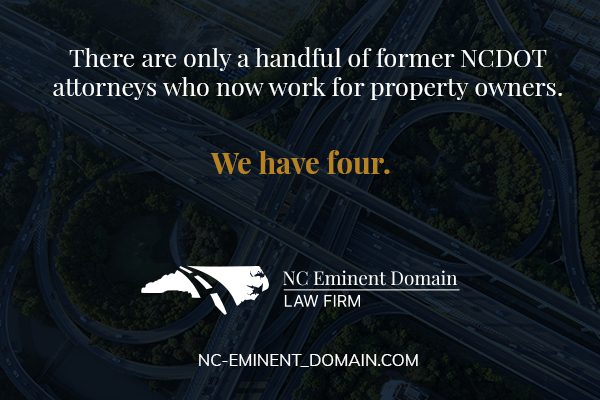Get a free case
evaluation today.
There are only a handful of attorneys in NC who practice eminent domain exclusively, and even fewer with NCDOT experience. We have several. That’s why its worth getting in touch with us for a free case evaluation.
Here’s how it works:
1) Tell us about your situation.
2) We research your property as needed, using DOT maps, our own technology, and experience to see the exact effects.
3) We let you know what we think a fair offer would be. This evaluation is free, and there’s no
pressure or obligation to hire us after.
But please don’t wait to act. Waiting can hurt your case, and the cost is the same: free.


